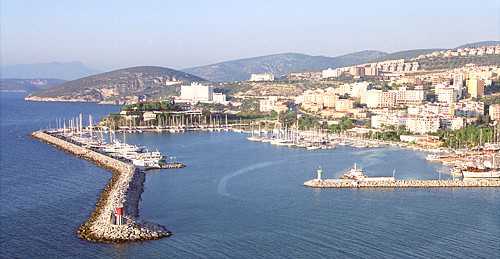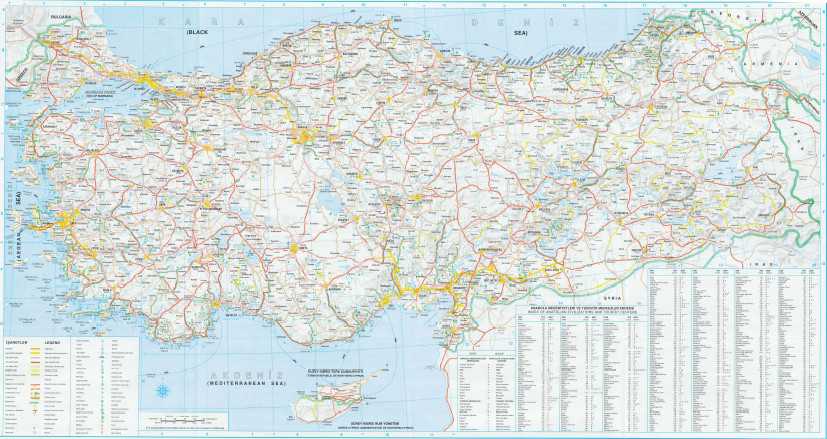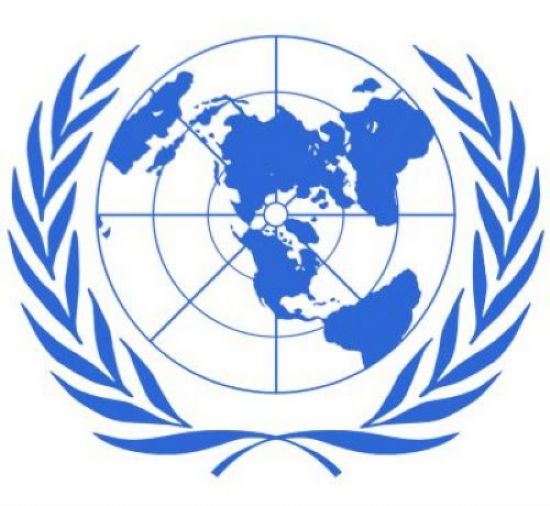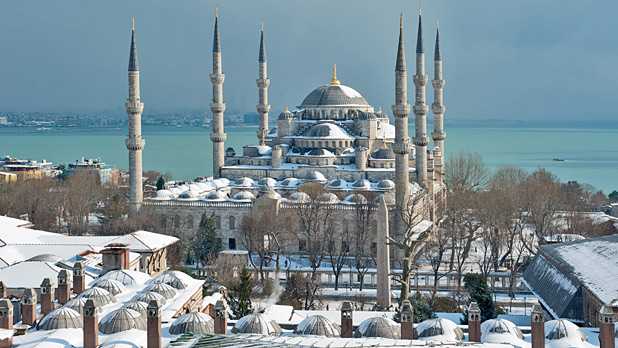Turkey’s Hilmi Guler (left) says his country backs Nabucco.
Western hopes for Caspian gas that doesn’t arrive via Russia are alive and well.
The future of the Nabucco natural-gas pipeline project have appeared to be in serious jeopardy since war broke out between Russia and Georgia.
Some export routes leading to the planned pipeline would run through Georgia, where Russian forces remain entrenched in unilaterally declared buffer zones nearly a month after an EU-brokered cease-fire.
Of course, Nabucco’s viability also hinges to some extent on gas supplies from Caspian countries Azerbaijan, Turkmenistan, and Kazakhstan, all of whom have been courted by Russia’s Gazprom, which recently offered to purchase all of the three countries’ gas.
But at a “strategic-cooperation conference” in Baku this week, there was broad support for participation in the Nabucco project.
“Azerbaijan is not giving up on the Nabucco project,” Azerbaijani Industry and Energy Minister Natiq Aliyev vowed. “This is a project that has a future.”
Turkish Energy Minister Hilmi Guler also seized on the opportunity to pledge his country’s support for Nabucco. “Nabucco will work. We will implement it,” he said. “The Nabucco project will strengthen not only Turkey’s energy security, but Europe’s too. No one should doubt it.”
The Nabucco plan calls for a 3,300-kilometer pipeline that will transport 31 billion cubic meters of gas to Europe every year once it is fully operational.
Crucially for Western backers like the European Union and the United States, Nabucco’s route avoids both Russian and Iranian territory entirely.
Importance Of Diversity
“The cooperation between these two countries [Azerbaijan and Turkmenistan] and others such as Kazakhstan to create a diversity of export possibilities helps ensure each country’s independence and economic strength,” said U.S. special representative to the EU Boyden Gray, who was at the Baku conference.
“In addition, there is strength in numbers and in cooperation. These countries in this region are stronger and more influential acting in concert than individually,” he added. “This is especially the case given the closed nature of the Caspian. If they are united on energy issues, these countries can better promote diversification and competition for their exports and, also, over the long haul promote the diversification of their economies through expanded regional and world trade.”
Gray noted that the United States will not benefit directly from Nabucco but that Washington hoped “that the [Caspian] region and Europe both benefit and that we, as a trading nation, will also indirectly benefit and we very much want for [Europe] to have a strong independent existence to promote your own economies to their fullest potential.”
Despite having no “direct” interest in the Nabucco project, the United States has been engaged in substantial lobbying for the project in the Caspian region. U.S. Vice President Dick Cheney was in Azerbaijan last week to promote diversification of energy export routes.
The Nabucco pipeline itself would start from the Georgian-Turkish and/or Turkish-Iranian borders and run to Austria. Nabucco project head Reinhard Mitschek told RFE/RL earlier this year that Nabucco does not contract for gas supplies, it is only an energy import route for Europe. It is up to shareholders in the project and other companies to arrange the purchase of gas and feed it into the Nabucco pipeline.
But without gas from Caspian countries such as Azerbaijan, Kazakhstan, and Turkmenistan it could be difficult to fill the pipeline, so the participation of those countries in Nabucco is vital.
Enough Gas?
The progress in Baku does not yet mean that Nabucco’s problems are all settled. Charles Esser, an energy analyst with the Brussels-based International Crisis Group, points out that Azerbaijan’s participation alone does not remove all the obstacles to Nabucco.
“The Azeri minister was tentative in his support because he said certainly Nabucco is still on track, he said, though, that ‘we in Azerbaijan don’t have enough gas to, by ourselves, supply [Nabucco] so it will require other sources.’ [Without other sources] he was doubtful that [Nabucco] would happen,” Esser says.
Turkmen officials at the Baku conference have not yet said what level of participation, if any, Turkmenistan would have in Nabucco. Furthermore, Turkmenistan has committed itself to pumping more gas to Russia and China in recent weeks. And Esser notes that the Russia-Georgia conflict is still fresh in the minds of many and will play a role in how Nabucco fares in the coming weeks.
“I think there’s a renewed political push for Nabucco; however, at the same time I think commercial risk has increased,” Esser says. “There is no way around it and because of that risk investors will want guarantees. I think we’ll have to see whether the increased political will for Nabucco translates into guarantees and perhaps subsidies.”
Nabucco is planning to hold a meeting of shareholders, potential investors, and potential suppliers in Budapest next month to discuss the pipeline project’s future.
RFE/RL Azerbaijani Service Director Kenan Aliyev contributed to this report






